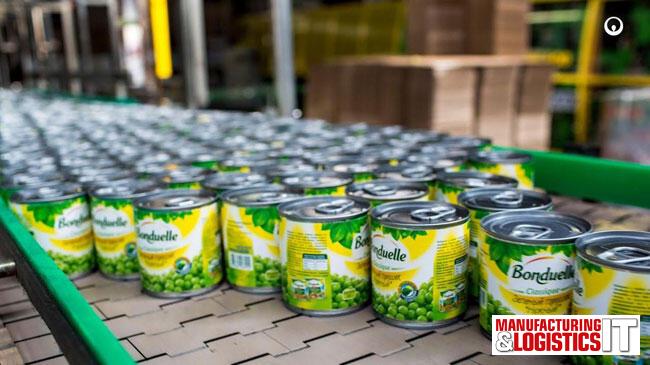Bonduelle, the supplier in Europe for canned vegetables and second largest for frozen veg, is close to completion of a supply chain transformation project that has helped the manufacturer reduce wastage and predict with pinpoint accuracy what’s most likely to sell in different parts of the world, following the implementation of demand forecasting software through FuturMaster.

The company
Bonduelle is a French family-run company and is the current world leader in ready-to-use vegetables, in all their forms. The €3bn company counts a number of leading brands across Europe, North America and Asia, including Bonduelle, Cassegrain, Artic Gardens and Ready Pac Foods. Bonduelle strives to offer customers the widest possible range of vegetables to satisfy a variety of consumption preferences, thanks to a host of pioneering technologies. Five hundred varieties of vegetables are available in the product range and supplied to over a hundred countries.
It employs nearly fifteen thousand people and operates fifty-eight production sites in ten different countries, all strategically placed to make sure that freshness and proximity to key customers can be guaranteed. With over 130,000 hectares harvested throughout the world and over three thousand farmers, Bonduelle produces around a million tonnes of canned goods a year, 450,000 tonnes of frozen goods and 350,000 tonnes of fresh produce.
Following a series of acquisitions - including most recently the Del Monte processed fruit and vegetable business in North America - the business is increasingly having to cater to different tastes in different markets across the globe. For instance, Bonduelle is a market leader in Europe and popular for products including tinned peas, asparagus and bagged lettuce, while its Ready Pack Foods brand in the US is better known for ready-to-eat salad bowls.
In Europe alone, twenty-seven markets are served across five key regions and supplied by 14 factories and warehouses. Three-quarters of its food sales are through established retail channels, and around a fifth of sales come from the food service industry, such as restaurants. The majority of sales are from ambient products supplied from a range of 5,900 products and a thousand frozen products.
The challenges
“There are significant differences across markets. Countries can have different delivery and logistics setups, not to mention different product requirements,” said Nathalie Morandière, S&OP and Methods Leader at Bonduelle Europe Long Life.
The company also recognised new challenges in the market and a gradual shift in consumer attitudes towards more locally produced, healthier products: Bonduelle shares the goal to be ‘the world reference in well-living through plant-based food’.
The solution
“We needed processes supported by technology to help us look forward over a minimum 18-month rolling period, so we could manage our businesses by looking at shared assumptions, risks and opportunities and be sure that we could take the necessary actions to close the gaps,” said Nathalie Morandière.
“We needed to transform our supply chain with a customer-focused approach. Before, we were used to working in silos, by region or department.”
Since deploying demand management processes supported by software through industry specialist FuturMaster, Bonduelle is now better armed at optimising its sales forecasts and can synchronise local demand across Europe. The company completed the rollout of the software across all regions in 2018 for its retail and food service businesses, with plans to focus next (in 2019) on how improved IBP (Integrated Business Planning) can help further with its sustainability objectives. A shared program is also running to continuously improve the sales forecast accuracy across Europe.
The benefits
“To be competitive, we really had to improve our supply chain strategies and adopt a common language and processes,” said Nathalie Morandière. “We rely on shared systems and access to the same reliable data across our sales, marketing and supply chain departments in every region.”
Benefits of the ‘digital transformation of Bonduelle’s supply chain’ cited, include: a better understanding of consumer needs; a significant reduction in obsolete and slow-moving stock; and successful new products and innovations being launched through improved monitoring of sales.
Forecasting accuracy has improved over both the short and long term. Short term planning accuracy is on track to increase up to 10% and long term planning accuracy has remained stable and very high (above 85%), despite moving to a more decentralised approach. There still remain some challenges and variations across different regions and volatility in the product mix, with smaller retailers that stock fewer brands sometimes being more difficult to predict and share data with. Private label also tends to require a more reactive approach, she added.
As the business continues to grow and expand internationally, improved information exchange, standardised processes and sharing reliable information is vital for Bonduelle to adopt the mantra: ‘think global, act local.’

Add a Comment
No messages on this article yet